The science fiction genre has always functioned as a collective hallucination, an imaginative space where the anxieties and aspirations of society are rendered visible. From Mary Shelley’s Frankenstein, a cautionary tale of ambition and its hubris, to Octavia Butler’s Parable of the Sower, which maps systemic collapse onto a terrifyingly plausible future, sci-fi doesn’t merely imagine alternative realities—it dissects the one we inhabit. By the mid-20th century, these existential interrogations expanded to the big screen, where B-movies transformed speculative literature into a cinematic playground.
Comedy, on the other hand, by its nature, disarms. It frames the absurdity of human ambition, the failures of our systems, and the contradictions of progress in a way that feels digestible—palatable, even—where pure sci-fi might feel overwhelming. As the screenwriter and author John Truby argues in his genre analysis, The Anatomy of Genres, comedy and sci-fi share a fundamental trait: both allow us to confront profound questions indirectly. Comedy tempers the existential dread often inherent to science fiction’s exploration of dystopia, making the narrative journey one of recognition rather than despair. The combination gives us permission to laugh at the chaos while quietly urging us to address it.
Television, particularly the cinematic shift ushered in by networks like HBO, has been instrumental in blending these genres with new depth and technical sophistication. Shows like The Orville and Resident Alien embrace the expansiveness of modern visual effects, while their humor cuts through the often dire scenarios sci-fi presents. This marriage of cinematic ambition and comedy reveals something critical about our cultural relationship to the future: we’re fascinated by what comes next, but we need to laugh to make it through the terrifying possibilities.
10
‘Red Dwarf’ (1988 – Present)
Red Dwarf
- Release Date
-
February 15, 1988
- Showrunner
-
Doug Naylor
- Writers
-
Rob Grant, Doug Naylor
Set three million years into deep space, Red Dwarf follows Dave Lister (Craig Charles), a slacker and the last surviving human, as he navigates life aboard a decrepit mining spaceship alongside a hologram of his insufferable former bunkmate Arnold Rimmer (Chris Barrie), a humanoid cat (Danny John-Jules), and Kryten, a neurotic android (Robert Llewellyn).
The series, created by Rob Grant and Doug Naylor, premiered on the BBC in 1988 and quickly became a cult favorite. Its low-budget charm and irreverent humor earned it a devoted following, while its absurd storylines, like encountering genetically engineered lifeforms or alternate realities, cemented its legacy as a British sci-fi comedy classic.
Existential Despair, Served with a Side of Laughter
What makes Red Dwarf so effective is its ability to blend existential sci-fi with biting, character-driven comedy. The show uses its premise—a lone survivor stuck in the vast nothingness of space—to explore loneliness, mortality, and the absurdity of human behavior.
But instead of wallowing in despair, it weaponizes humor to make its critiques digestible. Lister’s laid-back attitude contrasts hilariously with Rimmer’s neurotic obsession with rules, while Kryten’s desperate need to please critiques humanity’s dependence on validation. Through its sci-fi lens, Red Dwarf critiques bureaucracy, classism, and the human capacity for self-delusion, making it as thought-provoking as it is laugh-out-loud funny.
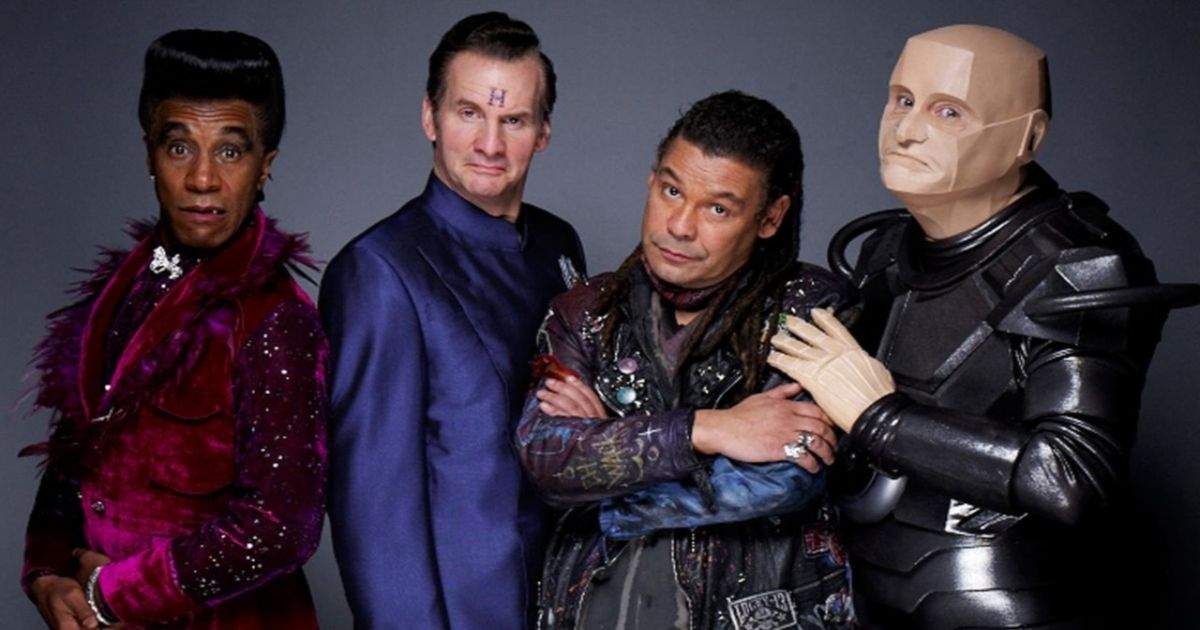
Related
Red Dwarf: How the Groundbreaking Show Helped Create Sci-fi Comedy
Here’s a look at how Red Dwarf proved that science fiction could be funny, inspiring shows like Futurama, Rick and Morty, and The Orville.
9
‘The Middleman’ (2008)
In this short-lived but beloved series, The Middleman follows Wendy Watson (Natalie Morales), an aspiring artist who is recruited to work for an enigmatic agency dedicated to fighting comic book-style evil. Her boss, the titular Middleman (Matt Keeslar), is a straight-laced, square-jawed superhero parody who faces off against threats like alien dictators, mad scientists, and cursed telenovelas. Created by Javier Grillo-Marxuach, the series aired on ABC Family for one season and was praised for its witty dialogue, quirky charm, and relentless embrace of pop culture references.
The Superhero as Bureaucrat
At its core, The Middleman uses comedy to deflate the self-seriousness of sci-fi and superhero tropes. The Middleman himself is a parody of the hyper-competent, morally upright hero archetype, and Wendy’s irreverent, often incredulous reactions ground the show in a modern sensibility.
The humor functions as a critique of workplace bureaucracy and the absurdity of institutional order—even when facing off against world-ending catastrophes, paperwork and protocols remain a top priority. By combining sci-fi absurdity with sharp social commentary, The Middleman captures the surreal, Kafkaesque humor of trying to navigate authority and chaos simultaneously.
8
‘Eureka’ (2006 – 2012)

Eureka
- Release Date
-
2006 – 2011
- Network
-
SyFy
Eureka centers on Sheriff Jack Carter (Colin Ferguson), an everyman tasked with maintaining order in a secret town populated entirely by geniuses working on cutting-edge science and technology. Despite his lack of scientific expertise, Carter’s down-to-earth problem-solving skills often save the day as the town’s experiments inevitably spiral out of control. The show, created by Andrew Cosby and Jaime Paglia, aired on Syfy for five seasons and was celebrated for its blend of lighthearted humor, quirky characters, and inventive sci-fi scenarios.
When Genius Goes Awry: Comedy in the Lab
The comedy in Eureka thrives on the absurdity of its premise: a town of the smartest people on Earth who somehow create catastrophic problems on a weekly basis. Jack Carter serves as the audience surrogate, his grounded reactions and wry humor contrasting with the eccentricities of the townsfolk. The show uses its sci-fi framework to explore themes like the limits of human ambition, the ethical dilemmas of unchecked technological advancement, and the unintended consequences of genius. Through its humor, Eureka critiques the hubris of believing that intelligence alone can solve humanity’s problems, offering a lighthearted yet incisive take on the pitfalls of progress.
7
‘Future Man’ (2017 – 2020)
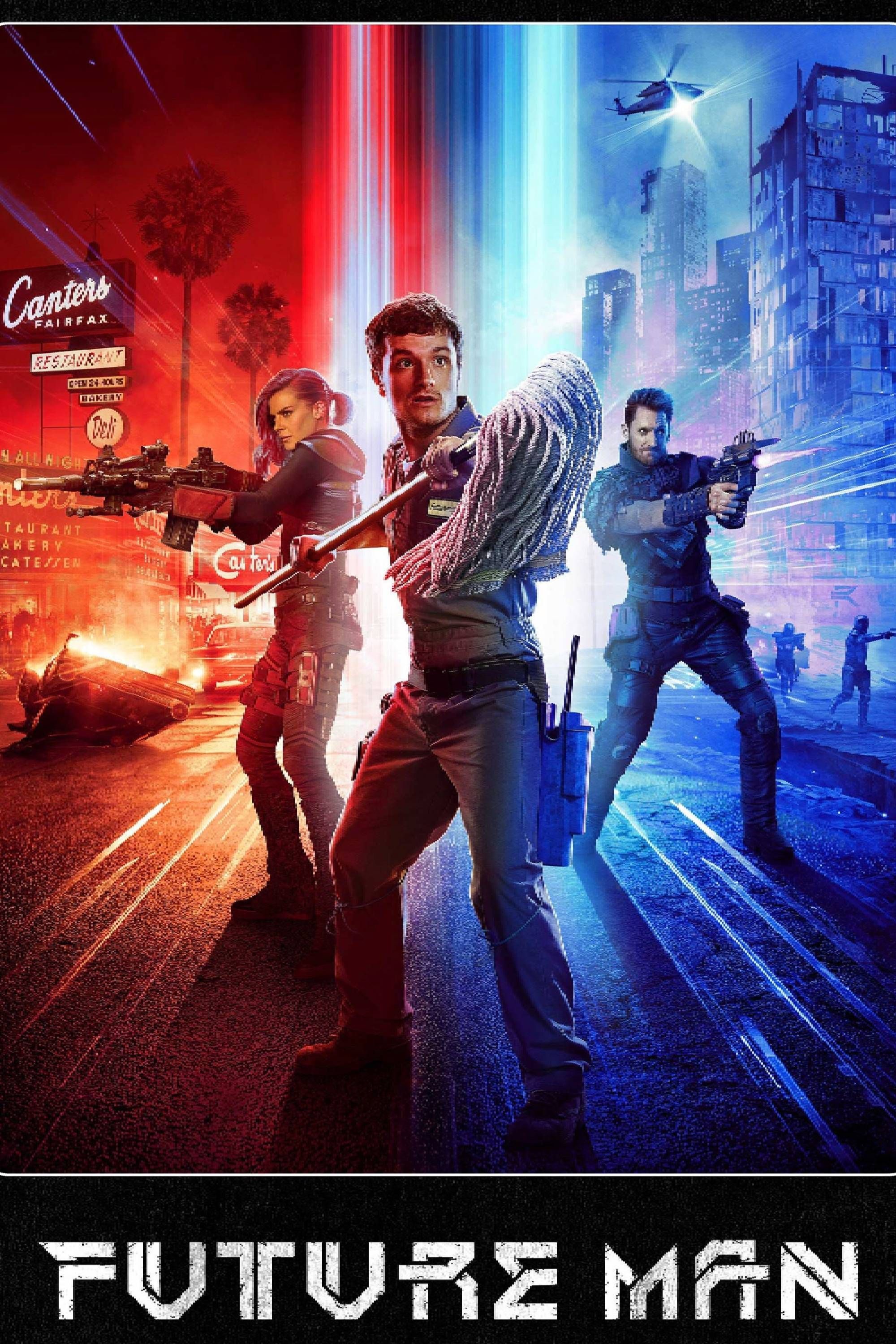
Future Man
- Release Date
-
2017 – 2019
- Network
-
FX
- Showrunner
-
Howard Overman
- Directors
-
Howard Overman
Imagine if The Last Starfighter collided headfirst with Superbad, and you’ll get something close to Future Man. The Hulu series follows Josh Futturman (Josh Hutcherson), a janitor and video game enthusiast who inadvertently beats an unbeatable game—only to discover it was actually a recruitment tool from the future. Soon, he’s pulled into a time-traveling mission led by two unhinged warriors, Tiger (Eliza Coupe) and Wolf (Derek Wilson), to save humanity from extinction.
Created by Kyle Hunter, Ariel Shaffir, and executive produced by Seth Rogen and Evan Goldberg, Future Man takes every sci-fi trope imaginable—dystopias, paradoxes, killer AI—and irreverently smashes them together with raunchy, self-aware humor.
Time-Travel Chaos Meets Stoner Comedy Nihilism
What makes Future Man so uniquely hilarious is its ability to completely desecrate the earnestness of sci-fi while still delivering an engaging time-travel narrative. The show treats the hero’s journey like a cosmic joke, where saving the world is less about noble sacrifice and more about stumbling into catastrophic screw-ups with increasingly ridiculous consequences.
Every time-travel mission spirals into total anarchy, gleefully parodying Terminator, Back to the Future, and The Hunger Games (which, given Josh Hutcherson’s casting, feels particularly cheeky). Beneath the crude jokes and absurd violence, Future Man is a sly commentary on the futility of trying to “fix” the past—especially when the biggest problem might just be humanity itself.
6
‘The Orville’ (2017 – Present)
When The Orville was first announced, it seemed like a simple parody: Seth MacFarlane’s irreverent take on Star Trek, complete with bawdy jokes and talking alien life forms. But what began as a sci-fi comedy quickly evolved into something far more ambitious. Set aboard the U.S.S. Orville, a mid-tier exploratory spaceship in the 25th century, the show follows Captain Ed Mercer (MacFarlane), his ex-wife and first officer Kelly Grayson (Adrianne Palicki), and a crew of misfits as they navigate diplomatic crises, space anomalies, and existential dilemmas.
Though initially marketed as a spoof, the series has proven itself a love letter to classic Star Trek, blending comedic banter with sincere, thought-provoking sci-fi storytelling.
A Love Letter to Trek with a Comedic Edge
What sets The Orville apart is its willingness to balance humor with heartfelt science fiction. Unlike shows that use sci-fi purely as a setup for jokes, The Orville genuinely engages with moral quandaries, political allegories, and deep-space existentialism—just with more casual workplace gossip in between. The comedy comes from the characters’ relatability; they may be traveling the cosmos, but they still deal with dating drama, HR disputes, and the awkwardness of making small talk with alien species.
As Star Trek has grown more serious and action-oriented in its modern iterations, The Orville fills the gap for fans longing for the spirit of The Next Generation—where optimism, exploration, and philosophical debates were just as important as the jokes.
Set in a world where everyone develops a superpower by adulthood—except for one unlucky outlier—Extraordinary follows 25-year-old Jen (Máiréad Tyers), who is stuck in a quarter-life crisis while everyone around her manifests abilities ranging from flight to necromancy to… turning anything they touch into PDF files.
Struggling with insecurity, dead-end jobs, and the pressure of being the one “normal” person in a world of superhumans, Jen fumbles her way through life alongside her best friend Carrie (Sofia Oxenham) and her shapeshifting cat-turned-boyfriend, Jizzlord (Luke Rollason). Created by Emma Moran and produced by the team behind Killing Eve, Extraordinary subverts the superhero genre with biting, deeply relatable humor.
Superpowers as a Metaphor for the Millennial Struggle
While most superhero stories focus on the burden of responsibility, Extraordinary asks what happens when superpowers become just another expectation—one more thing you’re supposed to achieve by a certain age. Jen’s lack of powers is played for laughs, but it also taps into the gnawing anxiety of not measuring up in a world where everyone else seems to be thriving.
The show satirizes the self-obsession of a society inundated with abilities, from people using necromancy to solve petty family disputes to dating apps filtering matches based on the usefulness of their powers. The comedy is sharp and self-aware, poking fun at both the superhero genre and the societal pressures of adulthood. For anyone who has ever felt like they’re falling behind in life, Extraordinary transforms that feeling into something wildly funny, deeply chaotic, and—ironically—super relatable.
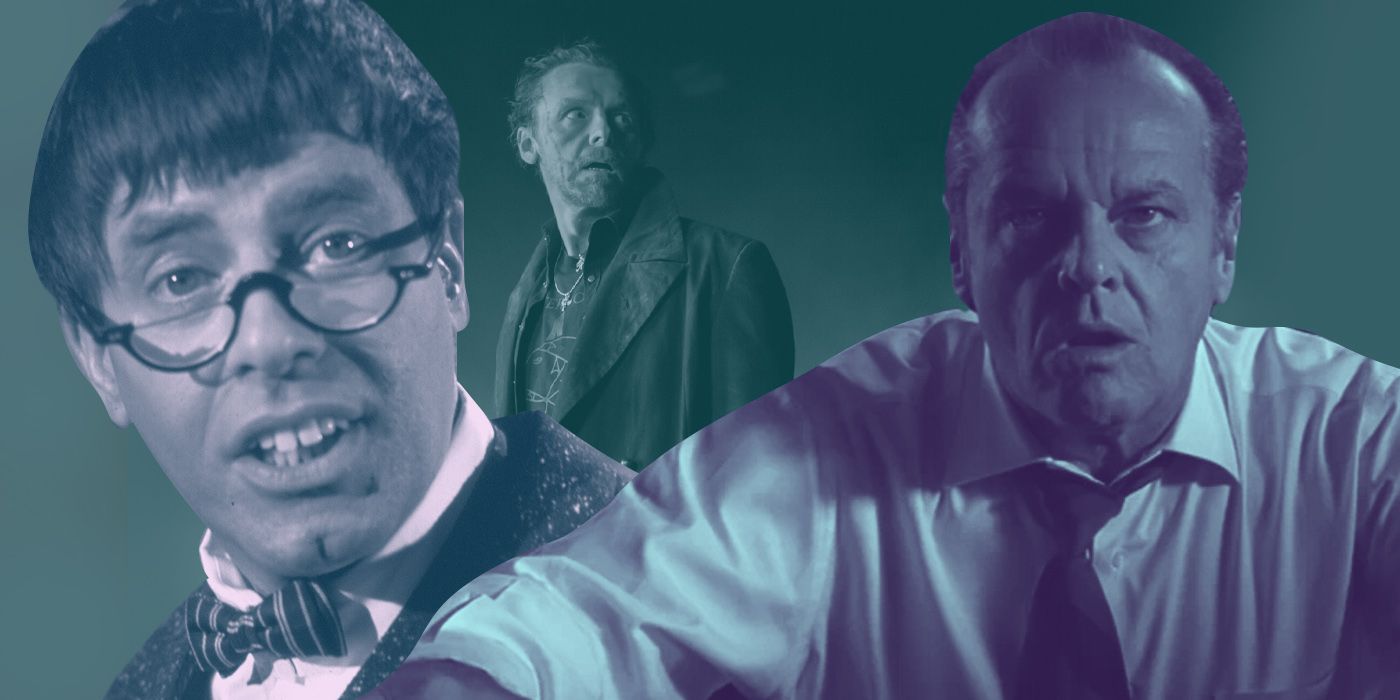
Related
The Best Sci-Fi Comedies, Ranked
The genres of comedy and science fiction have blended for decades. Which sci-fi comedy reigns supreme?!
4
‘Inside Job’ (2021 – 2022)
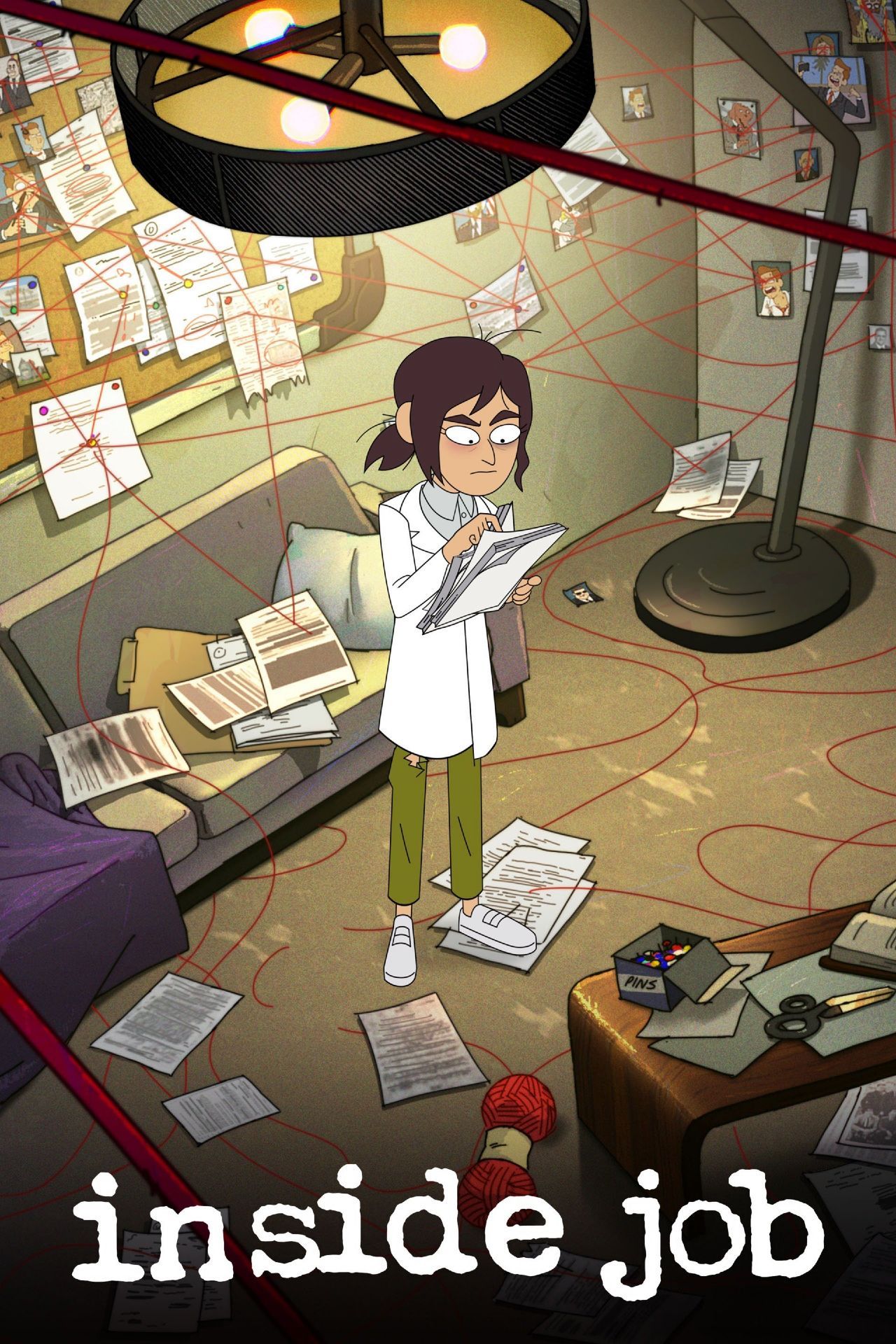
Inside Job
- Release Date
-
2021 – 2021
- Writers
-
Shion Takeuchi
Imagine if every conspiracy theory was real, but instead of shadowy cabals orchestrating world events with ominous intent, it was all managed by a bunch of dysfunctional office workers with HR meetings, interdepartmental feuds, and a desperate need for work-life balance. That’s Inside Job.
Created by Shion Takeuchi (Gravity Falls), this animated series follows Reagan Ridley (Lizzy Caplan), a brilliant but socially inept scientist working for Cognito Inc., a secret organization controlling world events from behind the scenes. With an emotionally incompetent father (Christian Slater) and a workplace full of chaotic incompetence, Reagan finds herself constantly fighting to keep global conspiracies from spiraling into disaster.
Bureaucratic Dystopia: When the Deep State Has Performance Reviews
The genius of Inside Job is how it filters world-ending stakes through the mundanity of corporate office culture. Its comedy emerges from the sheer absurdity of treating mind-control satellites, reptilian overlords, and Illuminati parties as just another Tuesday at the office.
Every episode blends sci-fi dystopia with workplace satire, lampooning everything from toxic startup culture to Silicon Valley egomania. But beneath the jokes, the show offers a sharp critique of modern capitalism—the way powerful institutions, no matter how advanced or dangerous, still run on petty office politics and personal grudges. It’s a bleakly hilarious reminder that even the forces shaping history probably still have Slack channels and incompetent middle managers.
3
‘Resident Alien’ (2021 – 2024)
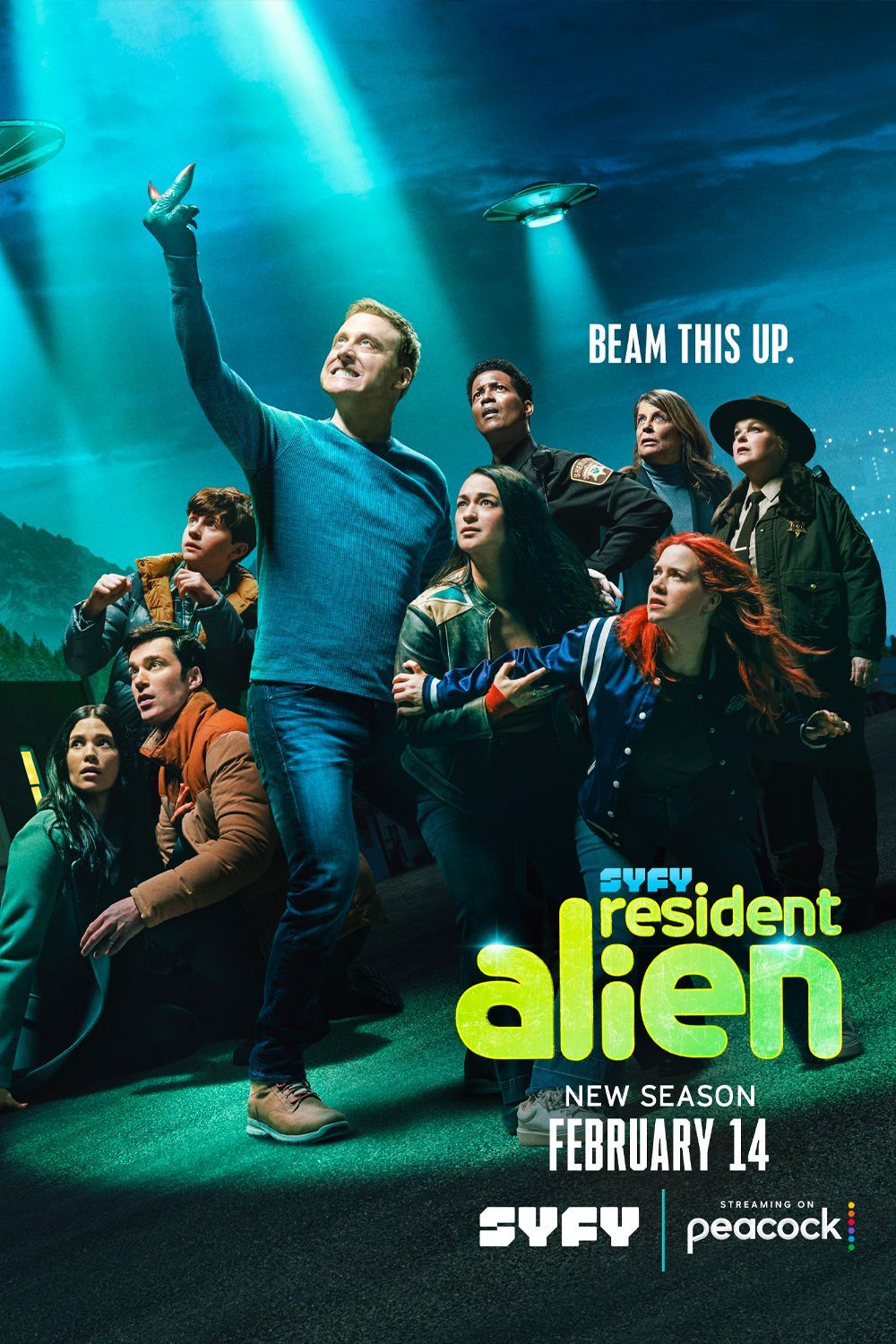
Resident Alien
- Release Date
-
January 27, 2021
- Network
-
USA Network
- Showrunner
-
Chris Sheridan
What happens when an alien invader meant to wipe out humanity starts to kind of… like it here? Resident Alien follows Dr. Harry Vanderspeigle (Alan Tudyk), a stranded extraterrestrial who takes on the identity of a small-town doctor while secretly searching for his lost doomsday device.
Blending murder mystery, fish-out-of-water comedy, and heartfelt character-driven storytelling, the show is a genre hybrid with an unexpectedly emotional core. Created by Chris Sheridan and based on the Dark Horse comic of the same name, Resident Alien was praised for Tudyk’s pitch-perfect comedic performance and its unique balance of sci-fi absurdity with small-town charm.
Blending the Cosmic with the Comedic
What makes Resident Alien work so well is its ability to mine humor from both grand sci-fi stakes and everyday human weirdness. Harry’s struggle to understand human behavior—whether it’s small talk, dating, or the bizarre concept of friendship—creates some of the show’s funniest moments, while his existential dilemma (should he complete his mission or embrace his newfound humanity?) gives the series real emotional weight.
The show’s sci-fi lens allows it to satirize everything from immigration politics to government incompetence, all while celebrating the messy, irrational beauty of human connection. It’s Mork & Mindy meets Fargo, proving that sometimes the best outsider’s perspective on humanity comes from, well, an actual alien.
2
‘Misfits’ (2009 – 2013)
When a group of delinquent young offenders on community service are struck by a freak electrical storm, they don’t just get drenched—they get superpowers. But instead of becoming heroes, they remain the same foul-mouthed, self-sabotaging misfits they were before, using their abilities for things like shoplifting, covering up accidental murders, or (in one character’s case) desperately trying to get laid.
Misfits, created by Howard Overman, took the superhero genre and gave it a distinctly British, anti-glamorous twist. The show launched the careers of stars like Robert Sheehan and Iwan Rheon, and while later seasons saw significant cast changes, its early seasons remain some of the best genre TV of the era.
Superpowers, But Make It Social Realism
Misfits is Skins with capes, a show that understands that if real people—especially young, irresponsible ones—got superpowers, their first instinct wouldn’t be to fight crime. The comedy is dark and often outrageous, leaning into the characters’ immaturity, moral ambiguity, and deep reluctance to do anything remotely heroic. But beneath its foul-mouthed cynicism lies a sharp social critique: the idea that power doesn’t inherently make people better. The sci-fi elements serve as an extension of the characters’ personal struggles, turning their powers into metaphors for insecurity, trauma, and class alienation.
In a media landscape obsessed with superhero origin stories, Misfits remains one of the most brutally honest—and hilarious—takes on what having powers would really be like way before Marvel superhero films and The Boys.

Related
Cult Classic Sci-Fi Comedy Finally Gets 4K Blu-ray Release
Never give up, never surrender!
1
‘Undone’ (2019 – Present)
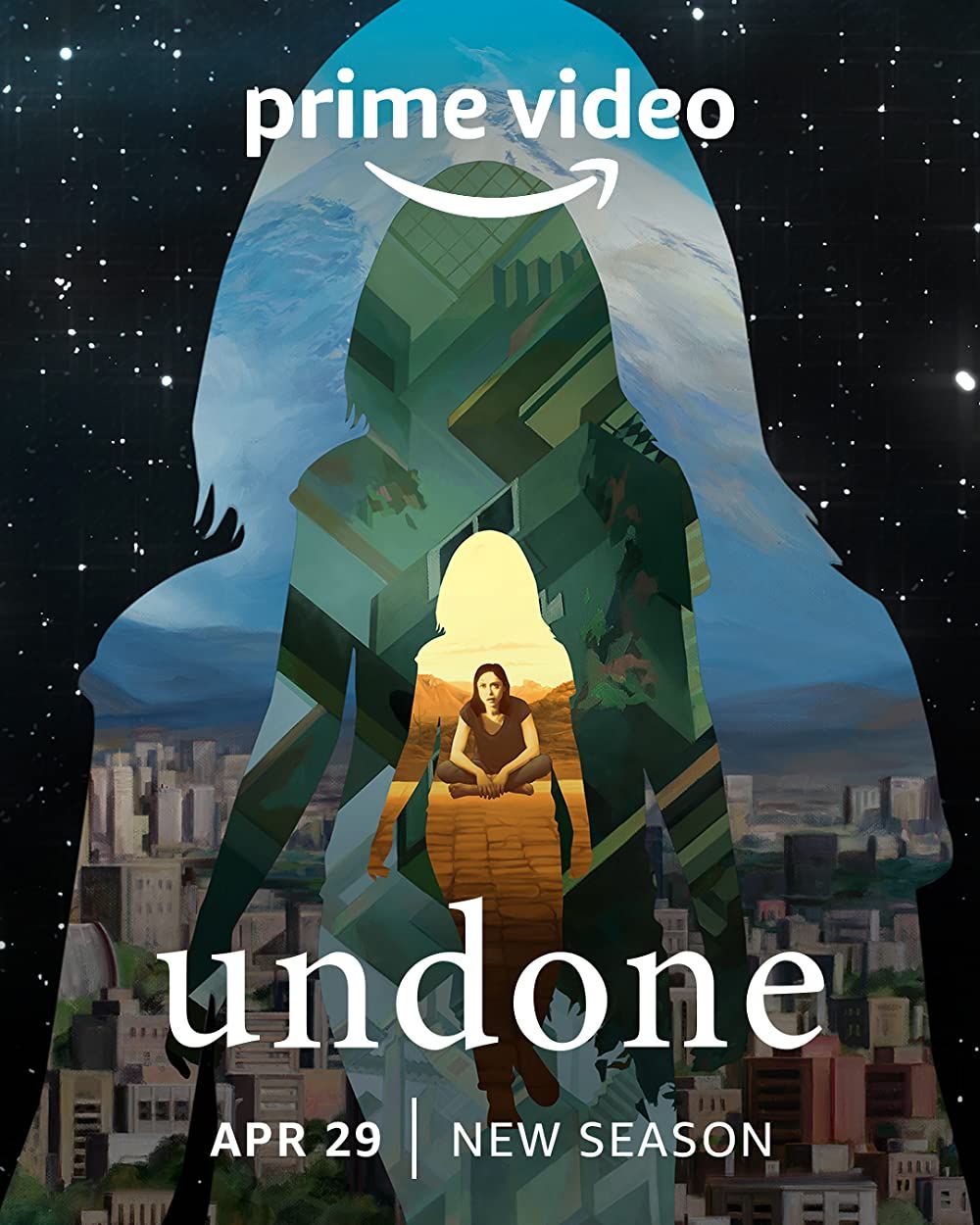
Undone
- Genre
-
Animation, Drama, Fantasy
- Language
-
English
- Number of Seasons
-
2
- Debut Date
-
September 13, 2019
- Studio
-
Amazon Studios, Hive House, Minnow Mountain
Blurring the line between sci-fi, psychological drama, and philosophy, Undone is a visually stunning animated series that follows Alma (Rosa Salazar), a young woman who begins experiencing time in nonlinear fragments after a near-fatal car accident. Guided by the spectral presence of her deceased father (Bob Odenkirk), she attempts to unravel the mystery of his death while questioning the nature of reality itself. Created by Raphael Bob-Waksberg (BoJack Horseman) and Kate Purdy, Undone uses rotoscope animation—a technique rarely seen in TV—to craft a dreamlike, hypnotic aesthetic.
Time Travel as Emotional Reckoning
Unlike traditional sci-fi comedies, Undone doesn’t rely on punchlines or slapstick; instead, it finds humor in the absurdity of consciousness itself. Alma’s biting sarcasm and reluctant hero’s journey inject levity into a narrative that otherwise veers into heady existentialism.
The show’s sci-fi framework—where time travel and altered consciousness serve as both narrative devices and psychological metaphors—allows it to explore generational trauma, mental illness, and grief in a way that feels intimate and emotionally raw. It’s Eternal Sunshine of the Spotless Mind meets A Scanner Darkly, a show that asks: if you could rewrite your past, would you really be able to fix it?
Source link



















Add Comment